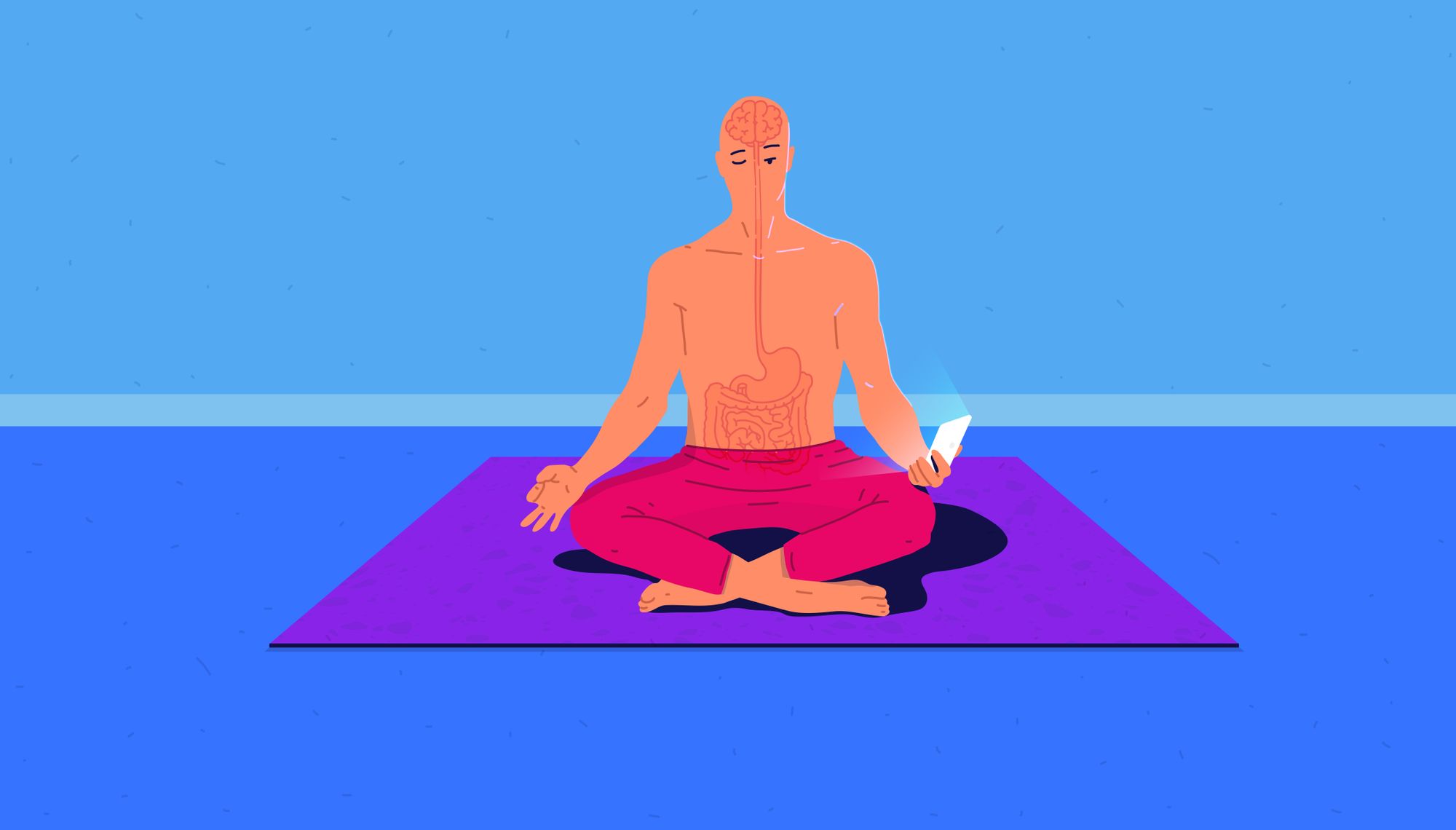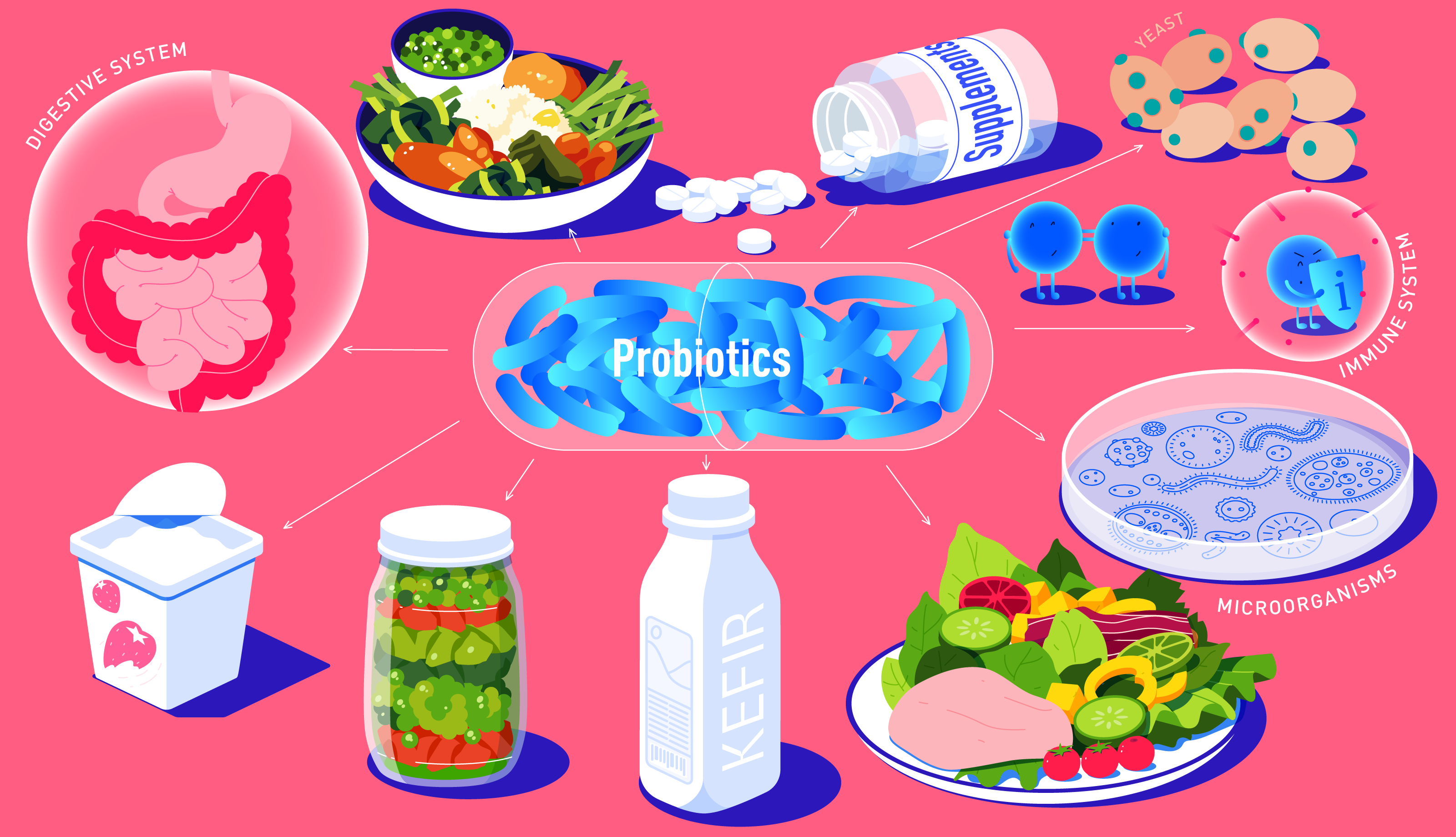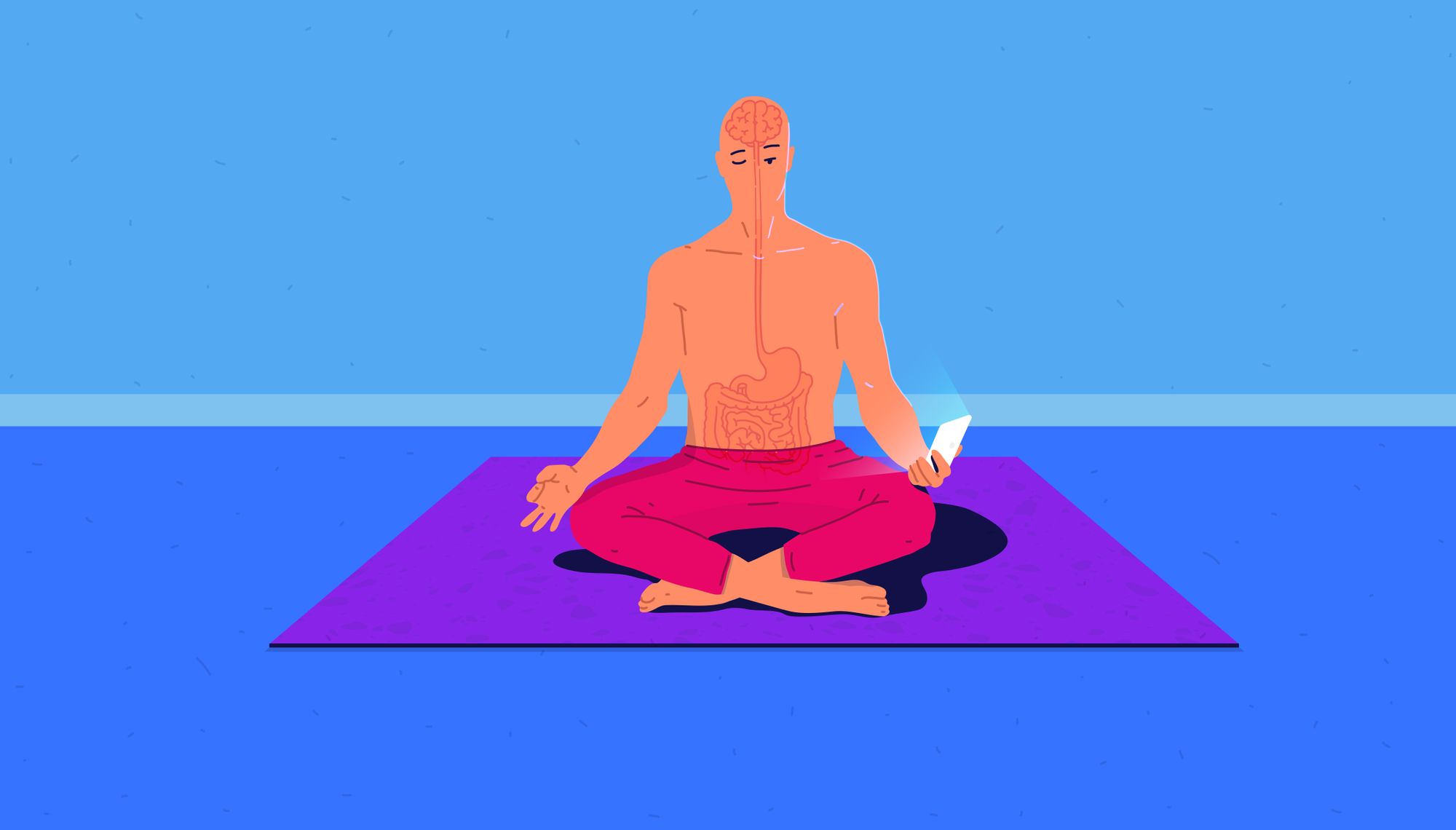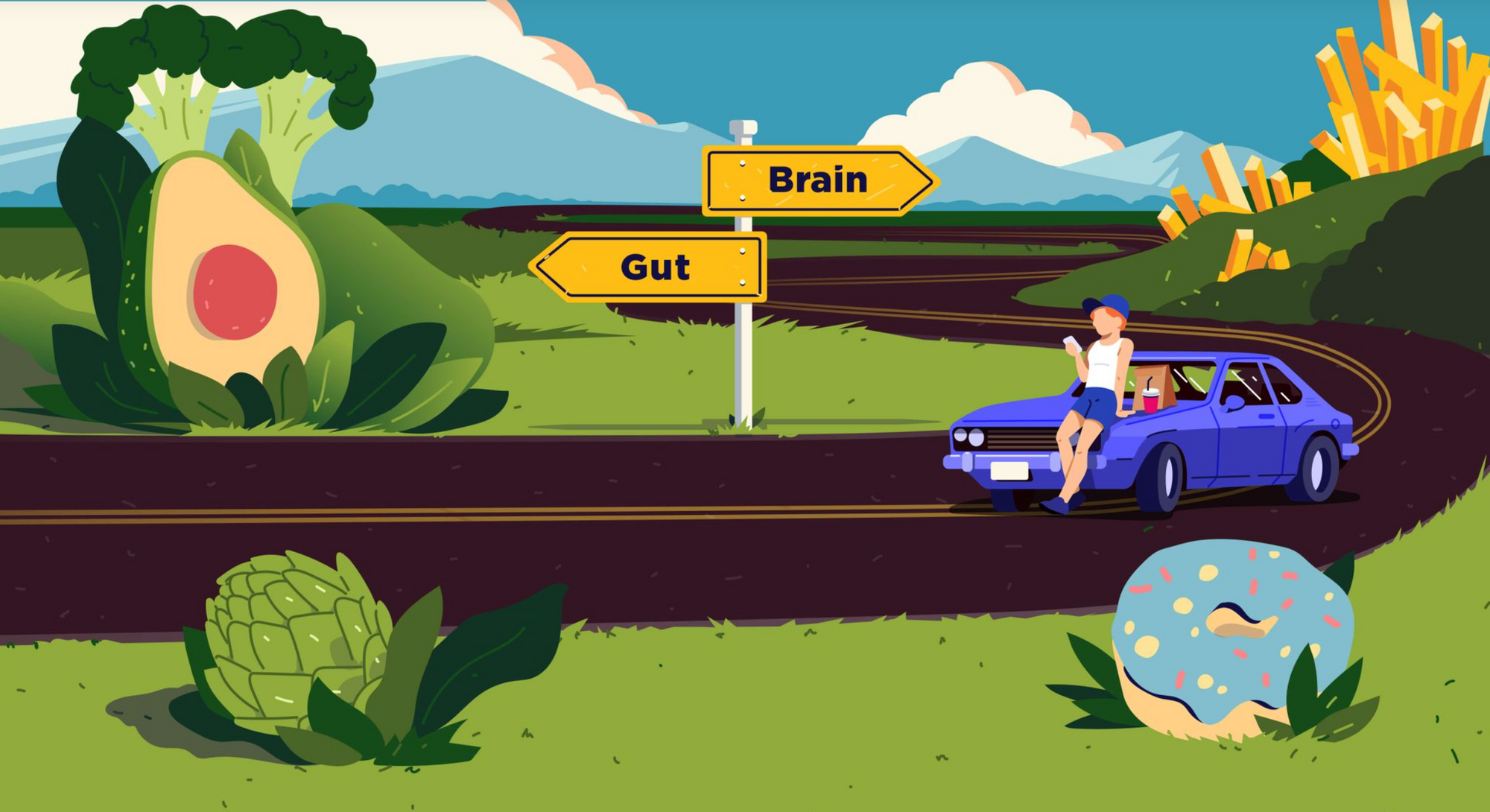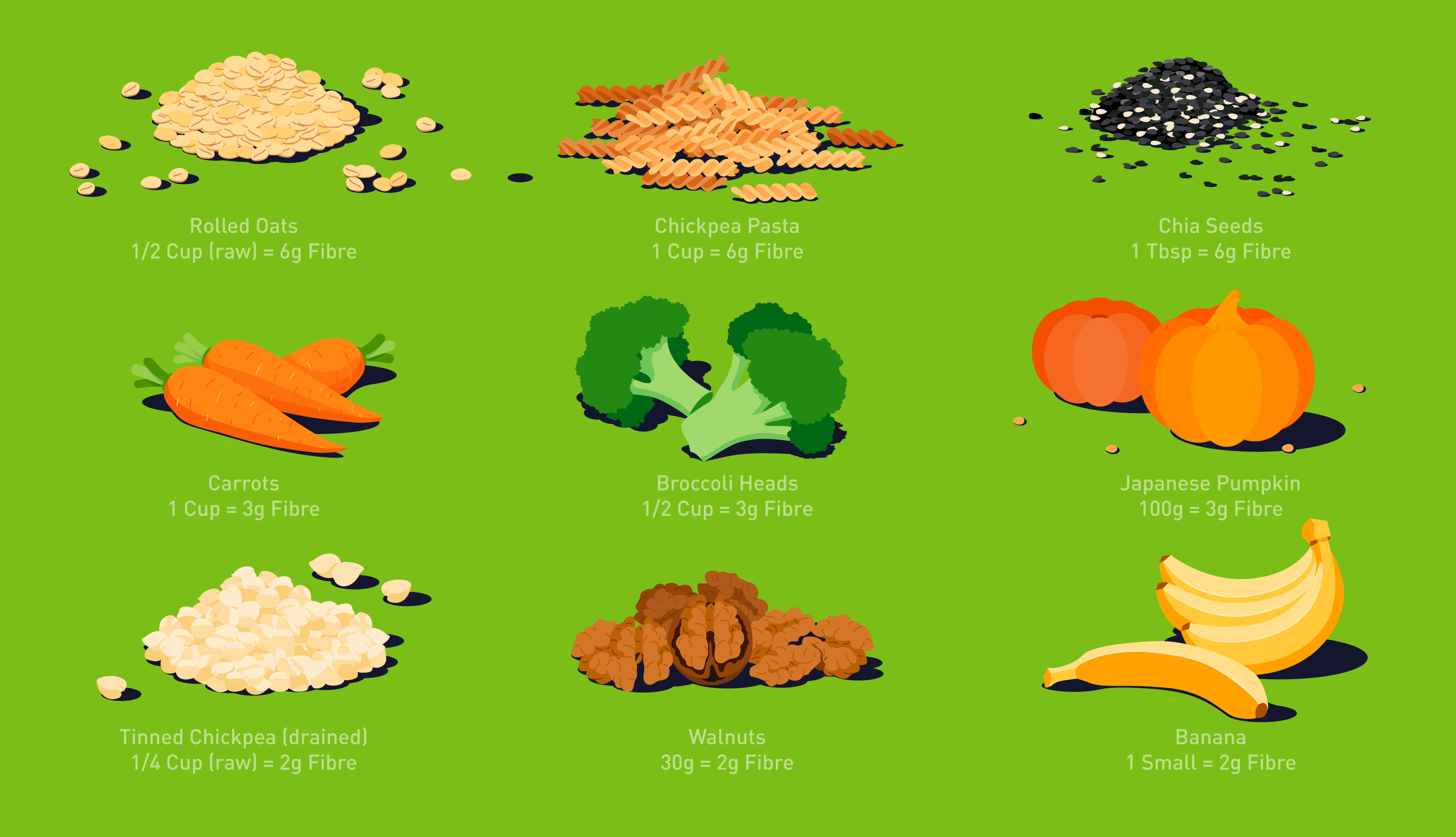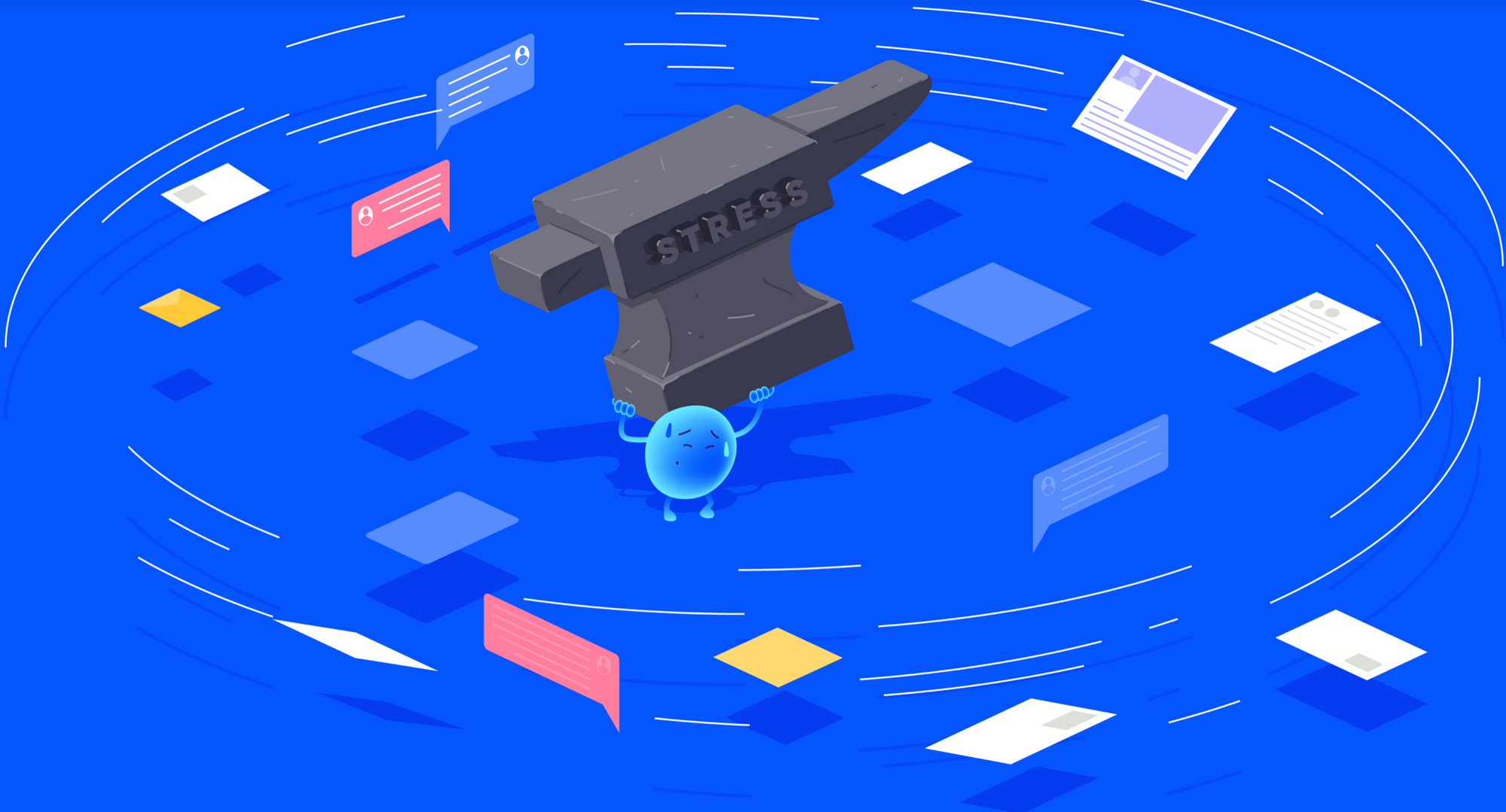Recent clinical trials suggest that psychological interventions are effective at treating IBS. In particular, gut-directed hypnosis and CBT have shown promise in reducing symptom severity. We explore the evidence further.
Table of contents
- IBS: a disorder of the gut-brain interaction
- The-gut brain axis
- Psychological interventions: using the mind to treat the body in IBS
- Gut directed hypnotherapy: it’s not as kooky as it sounds
- Cognitive behavioural therapy
- Final words
IBS: a disorder of the gut-brain interaction
IBS has traditionally been viewed as a functional GI disorder, meaning that there is no physical abnormality in the gut despite chronic, relapsing symptoms. This is in contrast to organic gastrointestinal issues like ulcerative colitis or Crohn’s disease.
While there is a psychosomatic component to IBS, researchers have also identified potential biological abnormalities, including:
- imbalances in the gut microbiome
- increased sensitivity in the intestines,
- altered gut motility
- low-grade chronic inflammation.
For example, IBS sufferers are more responsive to stimuli in the gut, known as visceral hypersensitivity; we know this because those with IBS report more discomfort when a small balloon is inflated in the large intestine than control groups.
So do abnormalities in the GI influence the mental health of those with IBS, or do depression and anxiety precipitate IBS symptoms?
In short, the answer is both; far from being separate causes, our gut and brain are intimately linked, influencing each other via constant, two-way communication.
How does this look in practice? Stress affects gut motility and increases visceral pain levels, leading to IBS symptoms. Likewise, IBS symptoms can cause psychological distress, creating a vicious cycle.
Scientists theorise that persistent distress can activate the immune system, impacting the gut directly via the vagus nerve and indirectly through inflammatory molecules called cytokines.
Last but not least, low-grade chronic inflammation can also disrupt the diversity and balance of the microbiome, leading to further adverse health outcomes.
In light of this, some researchers have referred to IBS as a disorder of the gut-brain axis instead of a functional bowel disorder. Which begs the question, what is the gut-brain axis?
☝IBS TIP☝ Try chewing your food 20 times before swallowing. This starts the digestive process and can aid digestion
The-gut brain axis
In short, whilst stress and anxiety can impact our digestive health, a troubled gut can affect our mood also. Researchers refer to this communication network as the gut-brain axis.
The gut houses most of the Enteric Nervous System (ENS), leading scientists to name it the “second brain”. This extensive network of nerve cells runs along the digestive tract, regulating digestion and swallowing.
Additionally, the ENS communicates with the Central Nervous System (CNS), influencing mood and pain perception. When you feel cranky because you haven't eaten, those signals are sent from the gut to the brain!
Psychological interventions: using the mind to treat the body in IBS
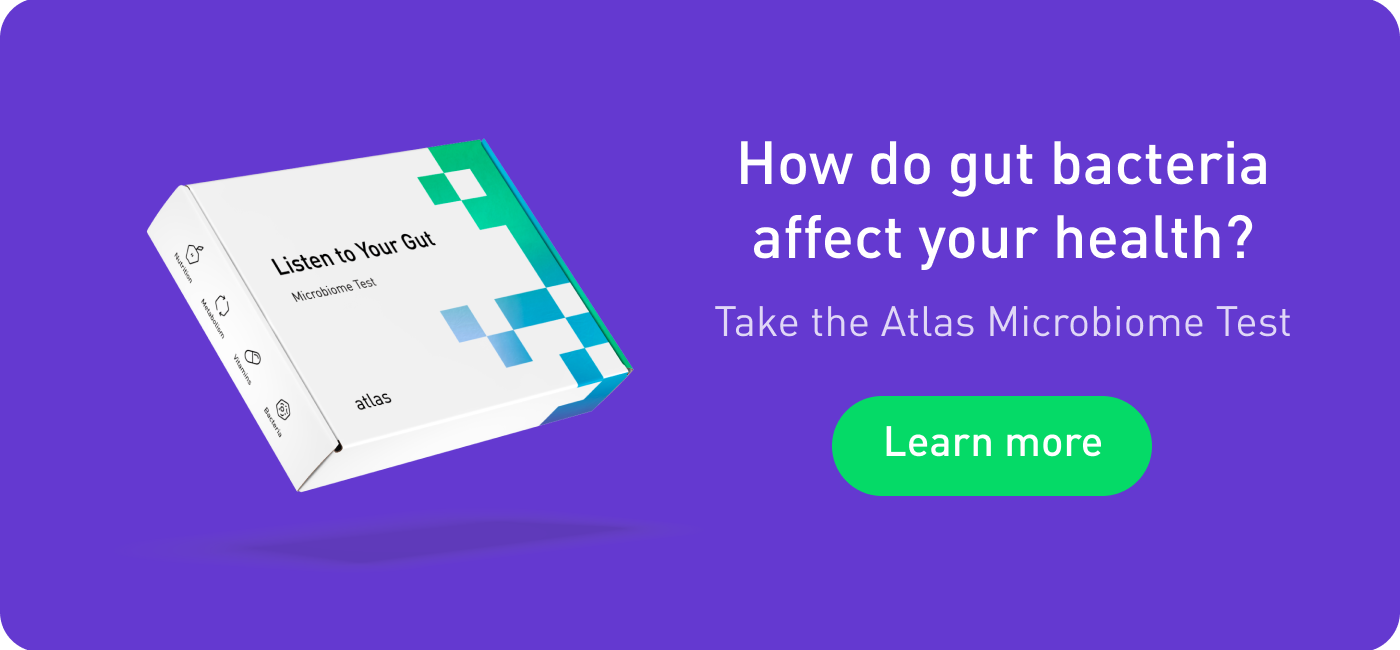
Considering these “two brains” communicate with each other, therapies that help one should also help the other, right? As it turns out, this appears to be the case, with two psychological interventions showing great promise in treating IBS symptoms.
Cognitive behavioural therapy and gut-directed hypnotherapy appear to reduce IBS symptom severity, particularly in those with refractory IBS (meaning it hasn't responded to standard treatment after 12 months).
Research suggests that they can be highly effective in managing IBS symptoms, helping to minimise abdominal pain in particular. Without further ado, let’s take a look at these treatments, what they entail and most importantly, the evidence for their efficacy:
Gut directed hypnotherapy: it’s not as kooky as it sounds
Many associate hypnoses with mind control and Derren Brown stunts, but gut-directed hypnosis is emerging as a credible medical intervention.
Gut-directed hypnosis involves educating the patient about the digestive system and utilises the power of suggestion, visualisation and metaphor.
A qualified hypnotist may also use individually tailored images, which specialists have designed to help normalise GI functioning.
An example of suggestions used during gut-directed hypnosis might be: “There will be no more pain, no more bloating and no more discomfort”.
Likewise, a practitioner might ask a patient to imagine they are swallowing a pill, which the patient then visualises soothing their symptoms as it moves through the gastrointestinal tract. Lastly, patients might be asked to think of their gut as a flowing river, free from obstacles and blockages.
It might sound kooky, and I’d forgive your scepticism, but multiple clinical studies have thrown up promising evidence for its efficacy.
Whilst researchers aren't sure of the mechanism for its effectiveness, gut-directed hypnosis appears to reduce hypersensitivity and improve gut motility, both contributing factors in IBS symptoms.
Monash University conducted a major study comparing the low-FODMAP dietary intervention with gut-directed hypnosis.
To this end, the researchers took 78 participants and split them into three groups: a hypnosis group, a low-FODMAP group, and a combined group.
Amazingly, over 70% of those in the hypnosis group reported significant improvement in bloating, abdominal pain and nausea.
More impressively, gut-directed hypnosis was shown to be as beneficial as the low-FODMAP diet, with benefits continuing for up to 6 months after treatment. Participants also reported reduced anxiety and depression, suggesting a possible mechanism for reducing symptoms.
In light of the growing body of evidence, one researcher conducted a comprehensive review of 35 academic papers published on gut-directed hypnosis in relation to IBS. Of these studies, 17 were randomised clinical trials.
In light of the research base, the paper concludes: ‘All IBS hypnotherapy studies have reported significant improvement in gastrointestinal symptoms, and 7 out of 10 RCTs in adults and all 3 RCTs in pediatric patient samples found superior outcomes for hypnosis compared to control groups.”
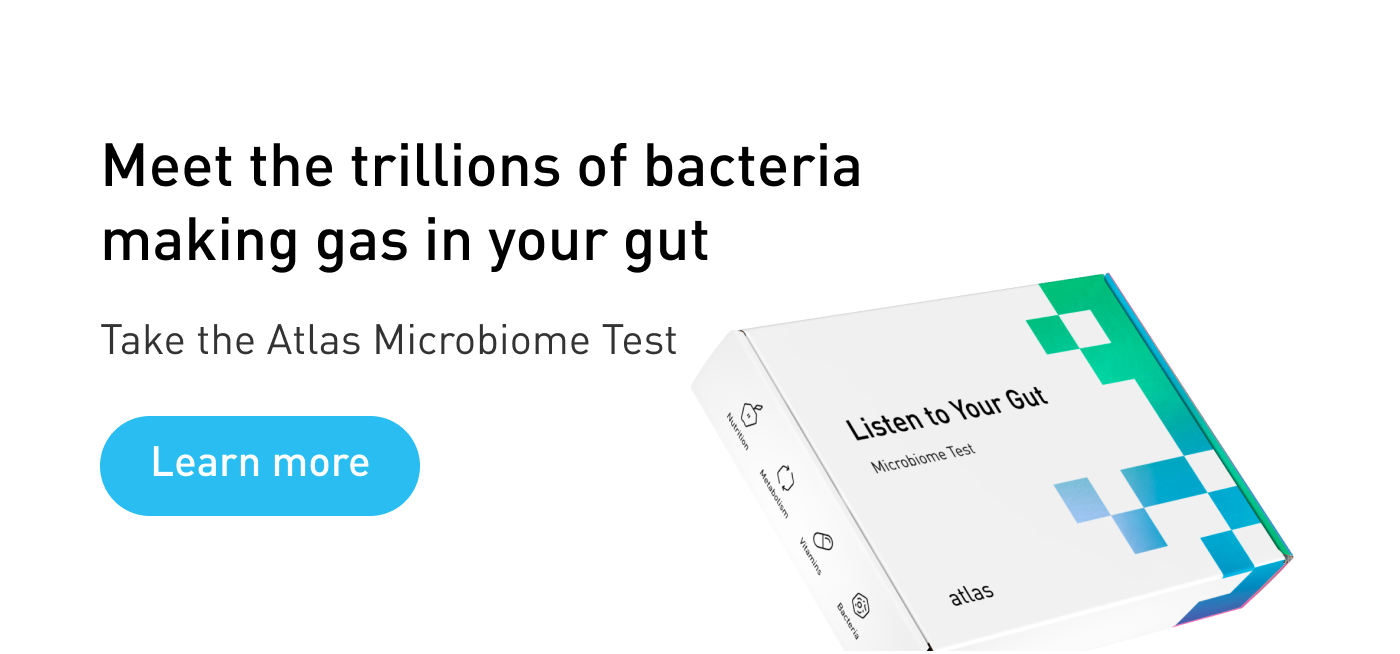
Based on previous research, the author speculates that hypnosis can shape how the brain handles sensory signals via the gut-brain axis.
Likewise, another study published in the British Journal Of General Practice reported that gut-directed hypnosis benefits patients by reducing medication usage and symptom severity.
As such, it is hard to attribute the benefits solely to gut-directed hypnosis. In light of these considerations, the research team called for further studies to be conducted.
Last but not least, a systematic review and meta-analysis of 7 RCTs found that gut-directed hypnosis significantly reduced abdominal pain scores in IBS sufferers.
☝TIP☝It should be noted that all the studies were at high risk for performance bias because hypnotherapy cannot be blinded.
Cognitive behavioural therapy

Cognitive-behavioural therapy is the gold standard in talking therapy, often used to treat various mental health issues, including depression, anxiety, OCD and eating disorders.
Moreover, CBT is also used to manage long-term conditions such as chronic fatigue syndrome and IBS.
CBT is based on the idea that our thoughts, feelings and physical sensations are interconnected. Proceeding from this starting point, CBT seeks to displace unhealthy behaviours by challenging negative thinking patterns.
Numerous clinical trials suggest that CBT can significantly reduce IBS symptoms, whether conducted remotely or in person. One of the largest randomised control trials to date, funded by the UK National Institute for Health Research, attested to the efficacy of CBT in IBS.
In the study, two forms of IBS-specific CBT were significantly more effective than standard treatments at reducing IBS symptom severity after 12 months.
In a follow-up study, also funded by the UK National Insititute for Health Research, the observed benefits lasted up to 24 months after treatment, though some previous gains were reduced compared to the 12-month follow-up.
Likewise, the large-scale Irritable Bowel Syndrome Outcome Study (IBSOS) showed that both minimal-contact and clinical-based CBT are more effective at reducing IBS symptoms than supportive counselling or IBS education.
Both forms of CBT significantly reduced symptom severity compared to the alternative interventions in the trial. Moreover, minimum contact CBT, meaning via telephone and webcam, was comparable to standard CBT conducted in person.
Once again, these interventions are thought to reduce IBS symptoms via the gut-brain axis, particularly by minimising anxiety.
If you need to flee from a tiger, all of these physiological changes can be helpful (other than diarrhoea, perhaps). On the other hand, these changes are not very helpful if you experience them daily due to stress or social anxiety.
CBT helps reframe a patient’s thoughts to minimise an unnecessary fight or flight response. Thanks to the gut-brain axis, a calmer mind can also settle digestive issues.
☝IBS FACT☝ In the United States, around 2 in 3 IBS sufferers are female. It is thought that female hormones might explain the prevalence of the disorder in women.
Final Words
Comorbidities between IBS and anxiety disorders suggest a psychosomatic component to IBS. With that said, research has also unearthed potential biological abnormalities in IBS patients, including dysbiosis of the microbiome, chronic inflammation and hypersensitivity.
Researchers believe that IBS is caused by disorders along the gut-brain axis- the bi-directional communication network between the gut and the brain.
In short, whilst GI issues can impact mood, psychological distress can also trigger physical dysfunctions such as slower gut motility and increased pain sensitivity.
In light of this, it would make sense that treatments tackling anxiety or stress could help the gut and vice versa. Well, that's exactly what the evidence suggests.
More specifically, cognitive behavioural therapy and gut-directed hypnosis show promise for treating IBS in randomised control trials.
According to the National Institute of Clinical Excellence, both cognitive behavioural therapy and gut-directed hypnosis should be considered for patients who do not respond to pharmacological or dietary interventions after 12 months.
☝️DISCLAIMER☝This article is for informational purposes only. It is not intended to constitute or be a substitute for professional medical advice, diagnosis, or treatment.

